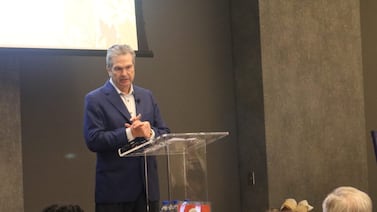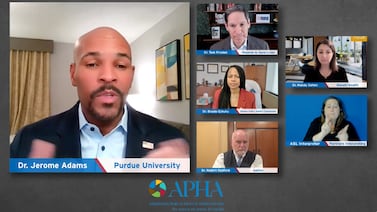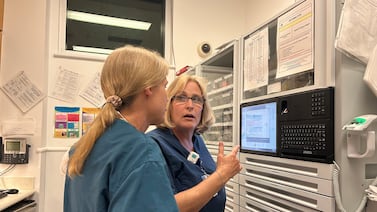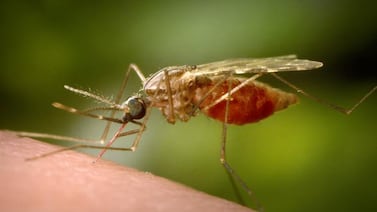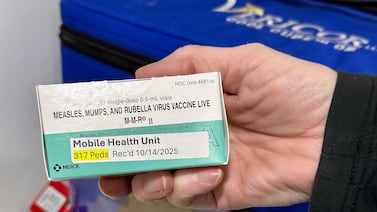Public health, explained: Sign up to receive Healthbeat’s free Atlanta newsletter here.
A new documentary about former President Jimmy Carter takes place in Sudan, but the lessons from his work to eradicate Guinea worm disease may resonate throughout the world and back to his home in Georgia.
Carter made it his life’s goal to see the disease eliminated in his lifetime, and he came very close before his death in December. The Atlanta-based Carter Center used its influence to encourage local governments around the world to address the problem. The number of Guinea worm disease cases in humans was reduced from the millions in 1986 to just four reported so far this year.
The story of the effort to wipe out the disease in Sudan is told in the documentary “The President and the Dragon,” released Wednesday to mark what would have been Carter’s 101st birthday on Amazon, Hoopla, and Verizon Fios streaming.
“One of the biggest lessons learned is meeting people where they are, which means you have to listen to them,” Adam Weiss, director of the center’s Guinea worm disease eradication program, told Healthbeat. “You have to understand their context. You have to understand their beliefs, which may be different than your beliefs.”
The “dragon” in the title refers to Guinea worm, or Dracunculus medinensis, a parasite contracted from drinking infected water. The larvae are born in human and some animal bodies, and over a period of 10 to 14 months, the female worm can grow to around three feet in length before exiting the body through a lesion, Weiss said.
The documentary shows a young girl screaming in pain as a worm is extracted from her ankle and depicts the long-term damage the disease can do by harming joints and rendering people permanently disabled.
The Carter Center’s approach has always been to work with local leaders and communities, Weiss said, which was crucial to its success.
“It’s not about parachuting into a location and saying, ‘We’re going to fix your problem.’ Not only is that naive and incorrectly ethnocentric, but it also is not going to be sustainable and durable,” Weiss said.
Weiss, a former Peace Corps volunteer, gave the example of working in Muslim communities in northern Ghana, where people are religiously required to use natural water for ablution rituals. He said conversations about the meaning of “natural water” and using filters to show people that there were parasites in pond water were far more effective tactics in changing behavior than simply having an outsider tell them not to use pond water.
Weiss drew a parallel with Covid-19 pandemic in the United States.
“Who was talking to community members, who was talking to mothers and fathers, who was talking to schools or others to understand, ‘Hey, how can we do these things that we need to do to protect you, but how can we do it in a way that meets you where you are?’” Weiss said.
The documentary describes how difficult it was to get funding and support to work on eliminating the disease in the late 1970s and 1980s. A United Nations Water Conference did not even mention Guinea worm disease, though it is a debilitating water-borne illness.
Carter and his wife, Rosalynn Carter, brought their influence, and the resources of The Carter Center to the effort beginning in 1986. In the documentary, Carter describes how urban leaders often did not know about Guinea worm disease, despite the damage it wrought in villages.
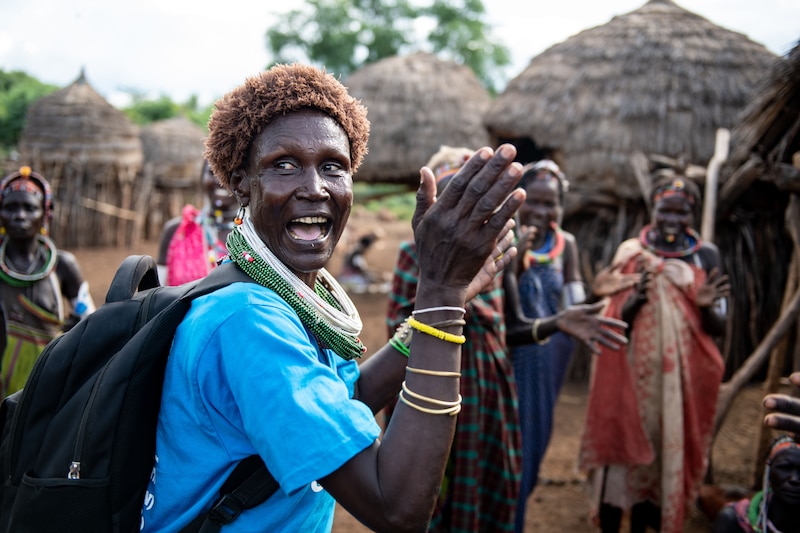
A robust surveillance system in endemic countries, as well as simple water filtration systems, formed the mainstay of the effort to eradicate the disease.
Carter’s work drove a six-month “Guinea worm ceasefire” in southern Sudan in 1995 to allow health workers to enter. They tackled Guinea worm disease and provided other services like immunizations. South Sudan became independent in 2011.
Weiss recounted seeing Jimmy Carter consoling a young girl in northern Ghana who was infected with Guinea worm. That human suffering is what motivated the Carters to direct their resources and political influence to eradicating the disease.
“He really was so empathetic that he felt that pain,” Weiss said. “You could see it in his eyes.”
The film was directed by Waleed Eltayeb, who is Sudanese, and Ian Murphy, who is Irish. Proceeds from the film rentals will be donated to The Carter Center.
Rebecca Grapevine is a reporter covering public health in Atlanta for Healthbeat. Contact Rebecca at rgrapevine@healthbeat.org.


